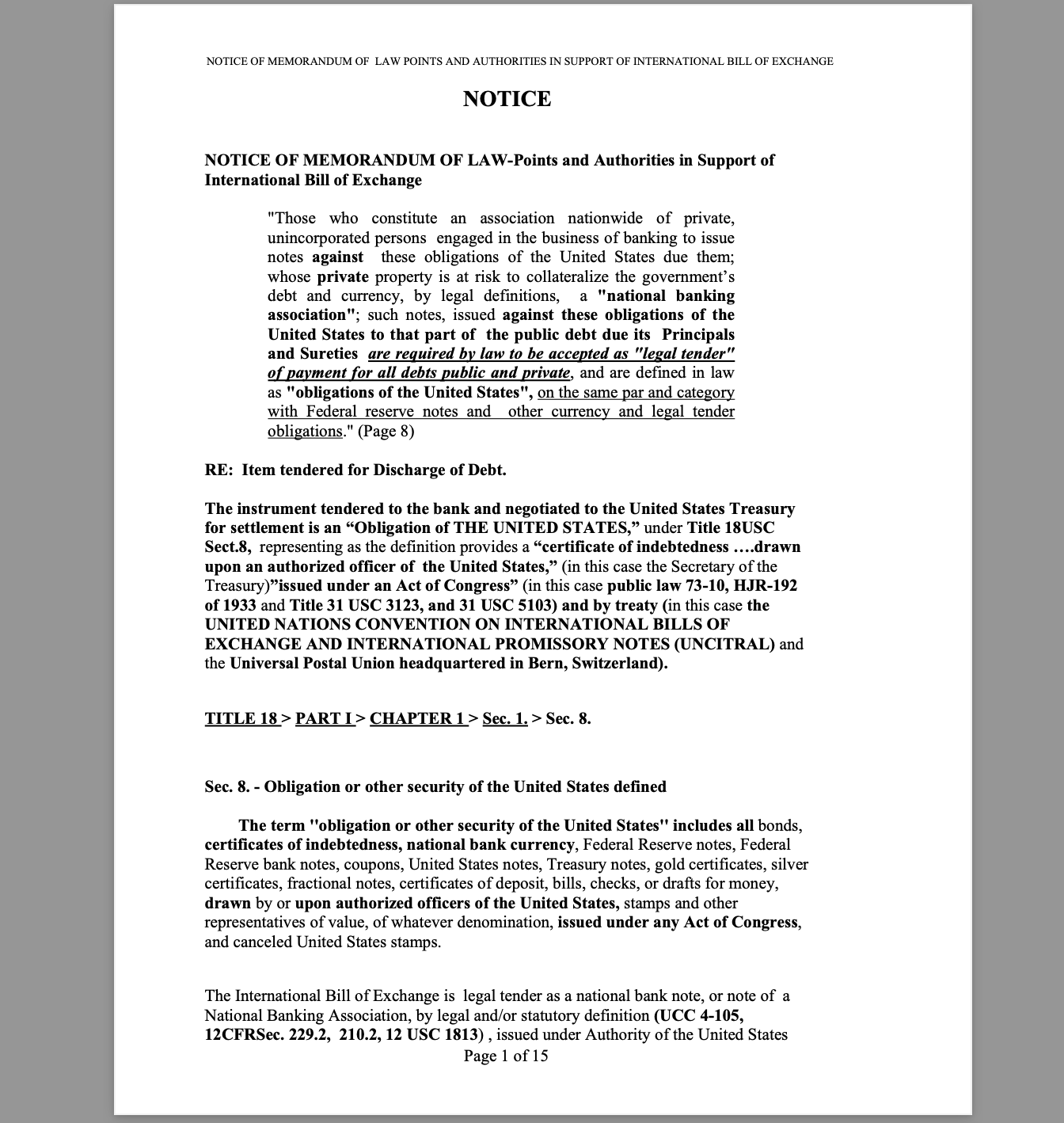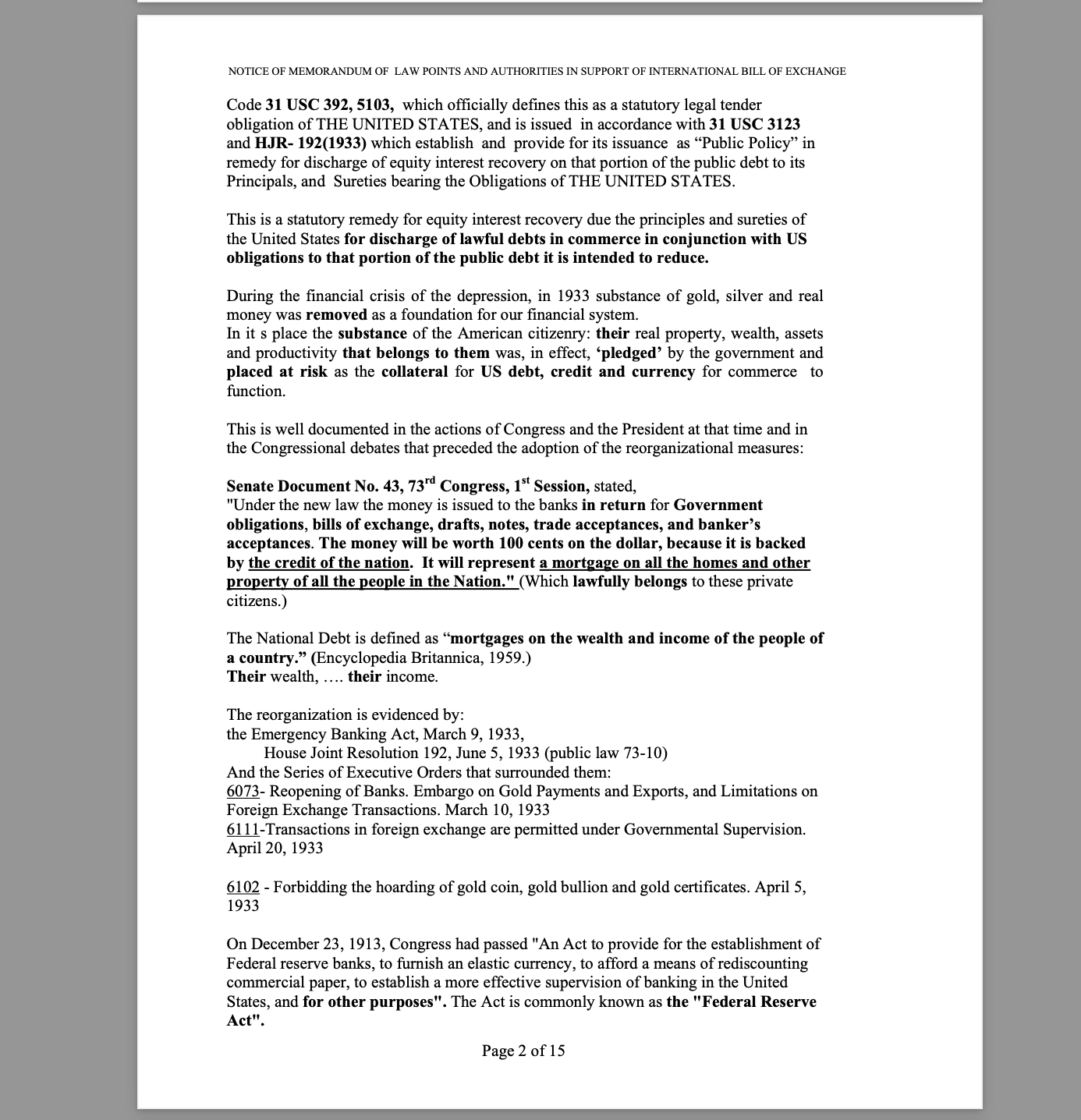While many Americans struggle to make car payments and/or struggle to save up to buy their dream cars, they are hugely misinformed about banking as a whole. Since 1933 the United States has been operating on a fake money scheme, where all money is backed by a “promise to pay” and One’s future labor. Many Americans don’t understand that when ANYONE that states they only accept a specific currency as payment (omitting BILLS OF EXCHANGE, ACCEPTANCES, SETOFFS, ETC..) are guilty of fraud, treason, extortion, coercion, embezzlement, larceny, and more.

Extortion, Coercion, Dereliction of Fiduciary Duties, Treason:
House Joint Resolution 192, of 1933 Public Law 73-10 explicitly states:
every provision contained in or made with respect to any obligation which purports to give the obligee a right to require payment in gold or a particular kind of coin or currency, or in an amount in money of the United States measured thereby, is declared to be against public policy; and no such provision shall be contained in or made with respect to any obligation hereafter incurred. Every obligation, heretofore of hereafter incurred, whether or not any such provision is contained therein or made with respect thereto, shall be discharged upon payment, dollar for dollar, in any coin or currency which at the time of payment is legal tender for public and private debts”
That means when a Car Dealership provides you with a “BUYERS ORDER” (which is defined as an “informal BILL OF EXCHANGE”) One can Lawfully do an “Acceptance” and provide a BILL OF EXCHANGE as tender of payment…. <-You read that correctly.

it is a common misconception that you must pay bills out of pocket. The united States of America operate on a pledge system.
- Everything is prepaid.
- Propaganda is legal
- The “United States”(corporation) can control and manipulate its possessions, including “United States citizens”(ens legis).
- See: the 1940 Buck Act: Citizens of the United States are Possessions
All obligations are those of the United States (corporation) as stipulated by 18 U.S. Code § 8 – Obligation or other security of the United States defined:
The term “obligation or other security of the United States” includes all bonds, certificates of indebtedness, national bank currency, Federal Reserve notes, Federal Reserve bank notes, coupons, United States notes, Treasury notes, gold certificates, silver certificates, fractional notes, certificates of deposit (promissory notes), bills, checks, or drafts for money, drawn by or upon authorized officers of the United States, stamps and other representatives of value, of whatever denomination, issued under any Act of Congress, and canceled United.
Furthermore, Article 1 section of the Constitution states:
No State shall enter into any Treaty, Alliance, or Confederation; grant Letters of Marque and Reprisal; coin Money; emit Bills of Credit; make any Thing but gold and silver Coin a Tender in Payment of Debts; pass any Bill of Attainder, ex post facto Law, or Law impairing the Obligation of Contracts, or grant any Title of Nobility.
Finally, if you “Tender Payment” to the person responsible for enforcing the setoff and/or discharge of the obligation and they refuse payment or dishonor it, there is discharge to the amount of the tender of payment. To summarize: if they don’t honor your payment the balance is zeroed out.
UCC § 3-603. TENDER OF PAYMENT.
(a) If tender of payment of an obligation to pay an instrument is made to a person entitled to enforce the instrument, the effect of tender is governed by principles of law applicable to tender of payment under a simple contract.
(b) If tender of payment of an obligation to pay an instrument is made to a person entitled to enforce the instrument and the tender is refused, there is discharge, to the extent of the amount of the tender, of the obligation of an indorser or accommodation party having a right of recourse with respect to the obligation to which the tender relates.
(c) If tender of payment of an amount due on an instrument is made to a person entitled to enforce the instrument, the obligation of the obligor to pay interest after the due date on the amount tendered is discharged. If presentment is required with respect to an instrument and the obligor is able and ready to pay on the due date at every place of payment stated in the instrument, the obligor is deemed to have made tender of payment on the due date to the person entitled to enforce the instrument.
Anytime an American mentions this to a car dealership, they just go silent. That’s when the competent initiate their Administrative Process.
Let’s end the fraud!







